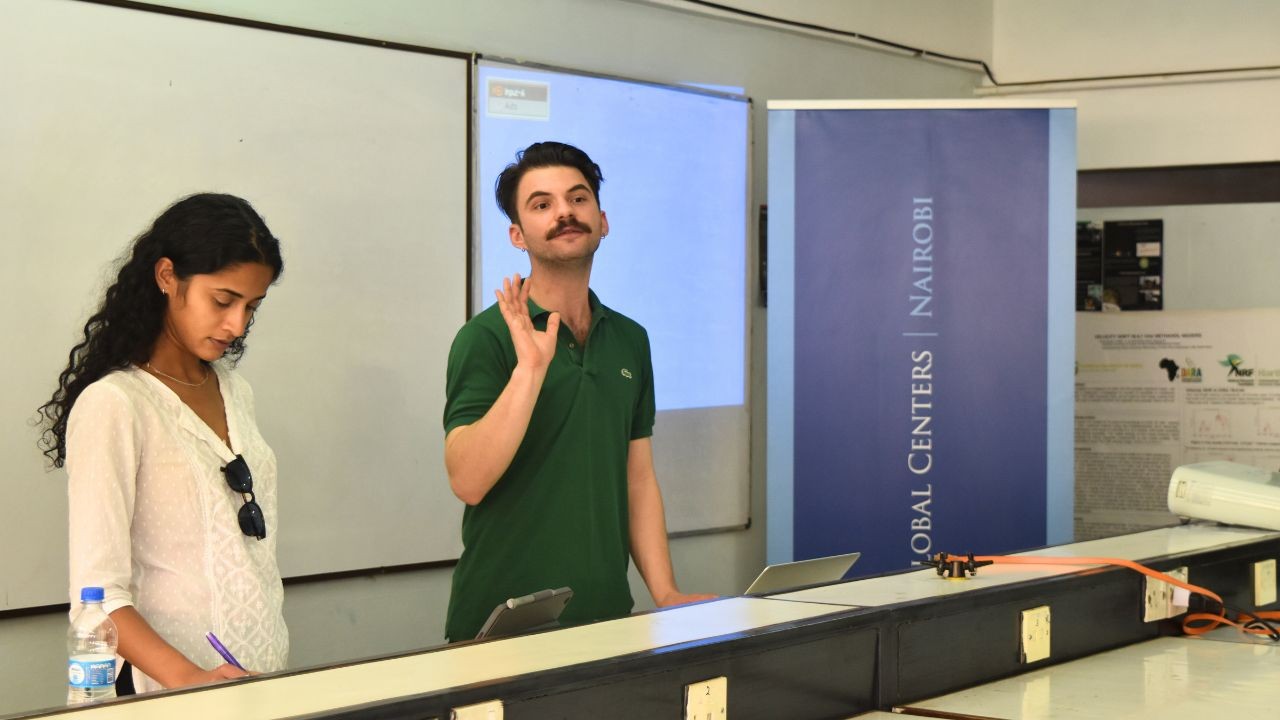The Nairobi Center has played a significant role in facilitating these consultations as it identified academics from the University of Nairobi (Kabete Campus) and the Technical University of Kenya, and also innovative technological start-ups, including GBIACK - which trains and promotes the Grow Biointensive Agriculture technology and Fairways Green Markets Limited – providing access to market, finance and credit and training to farmers. The Center caught up with two of the ten students participating in the project, Meha Jain, SIPA24, and Orcun Dogmazer, SIPA24, at the Technical University of Kenya, where they consulted with faculty experts in climate agriculture, social sciences, and physics. These discussions provided valuable insights into their climate-resilient innovation research, policy advocacy, and inclusion of youth and women in technological advancements. The full report on these discussions will be shared in the students' project findings.

